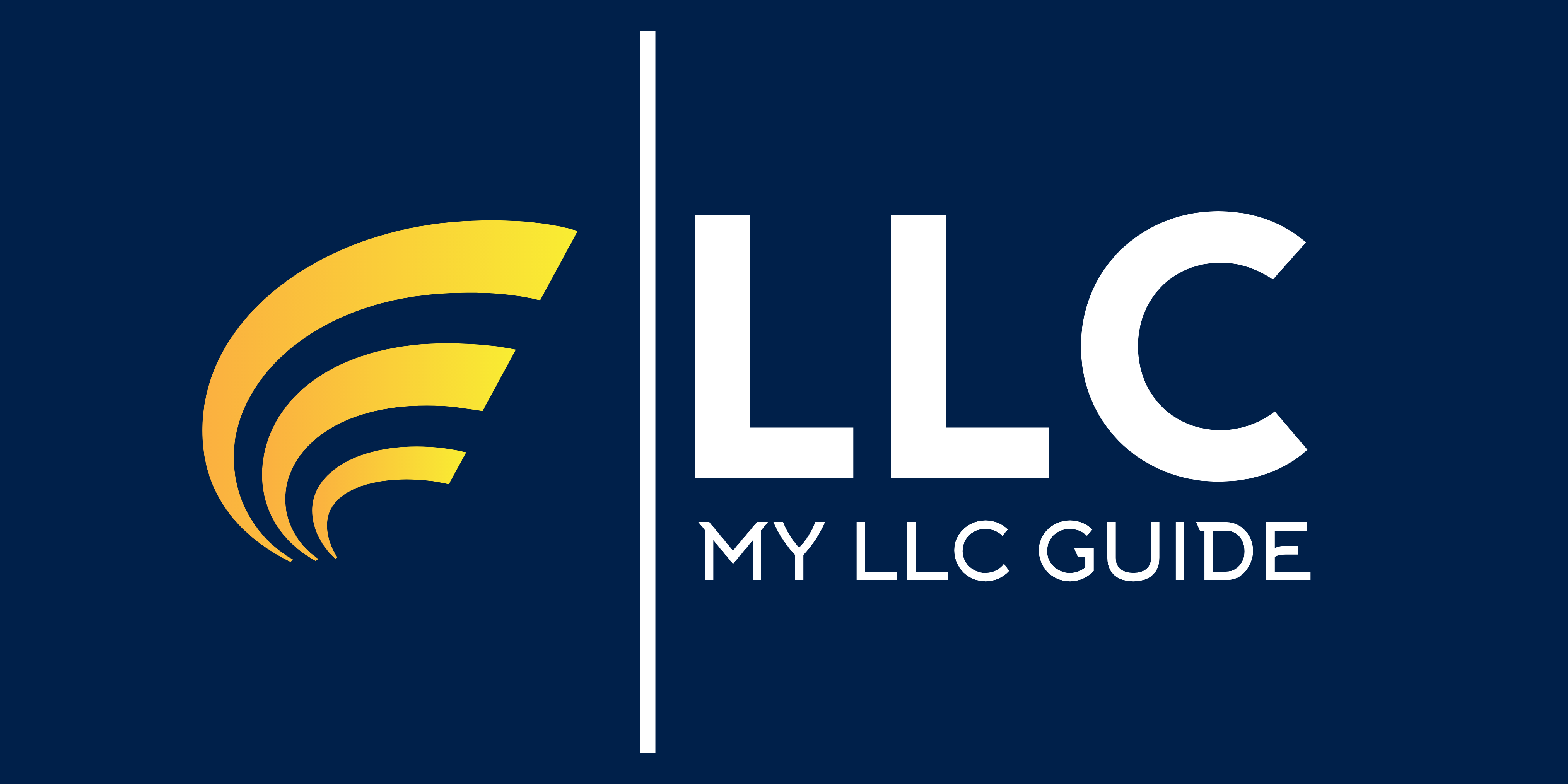
What are the Tax Benefits to LLC? An LLC has several key tax benefits over other company structures. Not least, an LLC allows you to choose the tax regime you want your company to fall under. An LLC can elect to be taxed as a Sole Proprietor, Partnership, S-corporation, or C-corporation.
Other tax benefits for LLC include the avoidance of double taxation, the ability to write off a wide range of business tax deductions, and the recently introduced Qualified Business Income deductions. Below we take you through everything you need to know about the tax benefits of LLC.
Informational Purposes Only
This article is for informational purposes only and does not constitute legal or tax advice. You should consult with a licensed professional regarding your specific business needs. For more see our full disclaimer page.

TAX BENEFITS TO LLC
An LLC is the most popular company structure in the United States. They are easy to form, provide liability protection, and come with a range of tax benefits that appeal to business owners. In fact, the IRS allows an LLC to elect the tax regime that benefits it most.
CAN ELECT A TAX REGIME
The greatest tax benefit of an LLC is that you get to decide how you want your company to be taxed. You have the option to elect a tax regime that best suits your business and minimizes your tax liability. An LLC can choose to be taxed as a pass-through entity or as a corporation.
You can elect for your company to pay tax in the same way as a Sole Proprietor, Partnership, S-corporation, or C-corporation. If you choose to be taxed as a sole proprietor, partnership, or S-corp you will benefit from pass-through taxation.
Pass-through taxation means all company profits pass through to their owners without being taxed at a corporate level. Individual owners then pay tax on these earnings in their personal tax return.
By default the IRS considers an LLC to be a pass-through entity. If you wish to elect a different tax regime you must contact the IRS and complete the necessary paperwork.
AVOID DOUBLE TAXATION
The ability to avoid double taxation is one of the key tax benefits of LLC. Double taxation occurs when company earnings are taxed twice. This occurs in the case of a C-corporation. These companies must pay corporate tax on the profits the company makes.
The earnings are then distributed amongst the shareholders. And, the shareholders pay tax on these earnings as part of their personal tax return. In effect, the earnings have been taxed twice.
This is not the case with an LLC. An LLC is regarded as a pass-through entity by the IRS. This means the company does not pay any tax on the earnings it makes. Instead, the profits are fully distributed amongst the LLC members.
Members then pay tax on the earnings as part of their tax return. Tax is paid only once. Note, if an LLC elects to be taxed as a C-corporation it will no longer be regarded as a pass-through entity and will begin paying double taxation.
BUSINESS TAX DEDUCTIONS
An LLC can write off certain start-up and operational expenses as business tax deductions. This allows you to reduce your overall tax liability and keep costs down. If the LLC is being taxed as a pass-through entity these deductions are claimed when you process your personal tax return.
Here’s a list of the most common business expenses that can be claimed as business tax deductions for an LLC.
HOME OFFICE
If you need a home office, you’re in luck. An LLC allows you to claim the setup and kit out of a home office as a business expense. This includes the installation of utilities to bring the space up to spec.
CHARITABLE DONATIONS
A certain amount of charitable donations can be written off as business tax deductions. Great news if you have a local charity you want to support.
HEALTH & DISABILITY INSURANCE
You can deduct health insurance premiums for an owner and their family. In the case of disability insurance, you can deduct the premium for the company owner and company employees.
OFFICE SUPPLIES & INTERNET
General office supplies, telephone, and internet costs qualify as a tax deduction for an LLC.
VEHICLE AND MILEAGE
The use of a company vehicle qualifies as a business tax deduction for an LLC. Deductions only qualify for company use of the vehicle. The vehicle must be owned by the company and used for business purposes only.
OTHER QUALIFYING TAX DEDUCTIONS
Other qualifying business tax deductions include startup costs, supplies, advertising, education, bank fees, and travel expenses. The best way to determine what your LLC is entitled to and how to maximize your tax deductions is to seek the advice of an accountant.
QUALIFIED BUSINESS INCOME DEDUCTIONS
The Qualified Business Income (QBI) deduction was established by the Tax Cuts and Jobs Act of 2017. It applies to small business owners and LLCs only.
The QBI allows an LLC to claim up to 20% of business income as a tax deduction. It is available to LLCs but not corporations. And, the benefit is due to expire in 2026. This is one of the most attractive tax benefits to LLC.
TAX DISADVANTAGES OF LLC
What are the tax disadvantages of an LLC? What about the cons? Now that we’ve covered the tax benefits for LLC, let’s take a look at the disadvantages.

SELF EMPLOYMENT TAX
Owners of LLC companies must pay self-employment taxes. This includes Medicare and Social Security payments. Medicare is a mandatory federal health insurance program. It provides health insurance for individuals aged 65 or older and some younger people with disabilities. Social security taxes are paid to the government which confers an entitlement to receive a future social benefit.
PROFITS ARE TAXED REGARDLESS OF DISTRIBUTION
In an LLC, an owner is taxed on the company profits they are entitled to regardless of whether they have received them or not. This means LLC members can be taxed on income they have not received. This is in direct contrast to how a corporation works. With a corporation, shareholders only pay tax on company dividends after they are received.
READ NEXT
TAX BENEFITS TO LLC FAQ
Here’s a round-up of the questions we most commonly get asked when discussing tax benefits for LLC.

Are LLC Profits Taxed Twice?
No, LLC profits are not taxed twice. They are taxed just once. An LLC is a disregarded entity and benefits from pass-through taxation. This means the company avoids double taxation. An LLC does not pay any corporate tax on earnings. Instead, earnings are distributed among its member who then pay income tax on these earnings as part of their personal tax return.
How Much Should I Save For Taxes As An LLC?
In general, most LLC members set save 30-40% of their earnings to cover taxes. This includes about 30% to cover federal taxes and a further 10% to cover state taxes. Every business is unique so you should consult a professional financial adviser to learn how much you should set aside to cover your tax liability.
What Can I Write Off As A Tax Deduction For An LLC?
An LLC can write off a wide range of expenses as valid business tax deductions. These include expenses related to a home office, charitable donations, health and disability insurance, office supplies, internet, vehicle and mileage, startup costs, supplies, advertising, education, bank fees, parking, and travel expenses. For more check out Business Tax Deductions.
How Do I Get Paid From an LLC?
You can get paid from an LLC in two ways. As an LLC member, you can receive a distribution of company profits and you can receive a paycheck for hours worked for the company. For more, check out How Do I Pay Myself From LLC?
What Percentage of Profit Should I Pay Myself From my LLC?
The percentage of profit you pay yourself from your LLC will be influenced by the nature of your business and a wide range of operational considerations. However, as a general rule, most small LLC business owners pay themselves a salary of about 50% of company profits. For the best advice, you should consult a qualified accountant.
RELATED
ABOUT THE AUTHOR
Jennifer Matheis – LLC Formation Specialist
Jennifer is our in-house LLC formation specialist. She is a graduate of the Ross School of Business at the University of Michigan and holds a Master of Business Administration. Jennifer has worked as a business management consultant in an advisory role for many years.
Hailing from Buffalo New York, Jennifer is a firm believer in the ‘seize the day’ mantra. When she is not writing for My LLC Guide she is busy managing one of her many start-up ventures. She is a keen sports fan and regularly attends Madison Square Garden to support the New York Knicks.